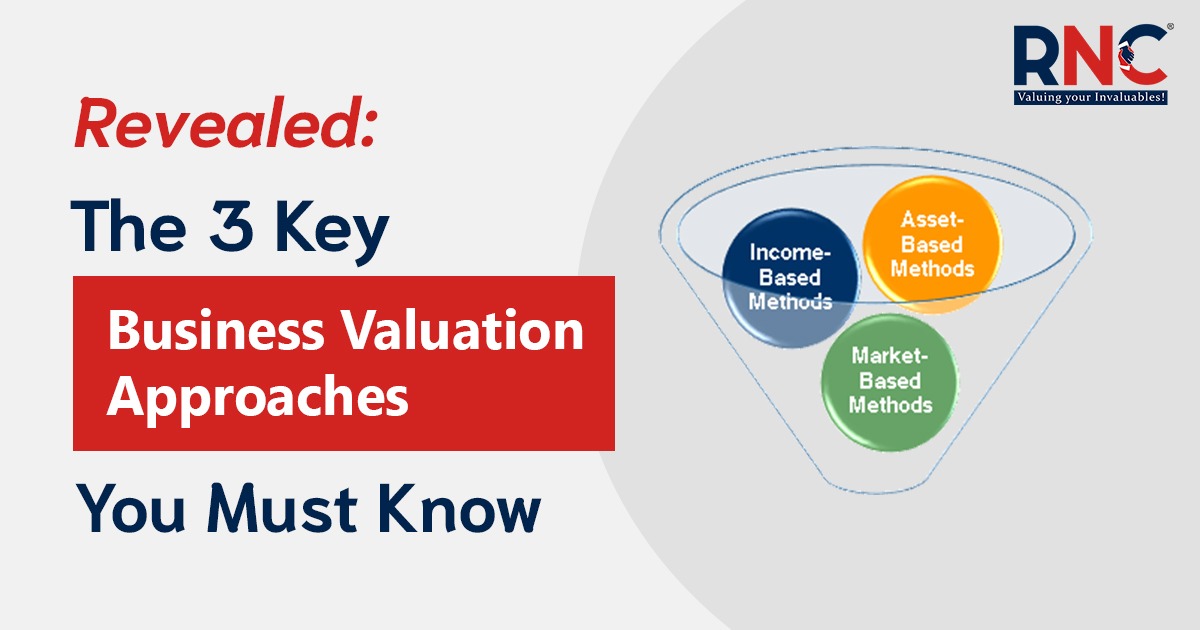
Objective
Business Valuation is a process of determining the economic worth of the company based on its valuation model & external factors. It reflects the company’s past performance as well as the expected future performance.
It is used by financial market participants to determine the price they are willing to buy or sell in the market.
Business Valuation depends on various factors such as:
The purpose of a valuation
The stages of Valuation
Past financials
- Measure & analyze past financials can help to project company growth & future financials.
Future Results
- Analysis of derived future financial results to arrive at key decisions.
Valuation Approach:
Accurate business valuation requires meticulous execution of a solid approach.
Depending upon the nature of operations, markets they serve, and assets they own, different valuation approaches may be applied, which are listed below:
- Income Approach- This approach is based on the idea of valuing the present value of a business’s future benefits.
- Market Approach- It is based on the idea of valuing the company by comparing it to the market value of similar publicly listed companies
- Asset Approach – It focuses on a company’s net asset value. It is based on the principle of substitution that a prudent buyer will not pay more for a property than the cost of acquiring a substitute property of an equivalent utility.
Also Read, A Textile Polyester Yarn Factory Became Insolvent Due To Various Factors
FAQs:
1. What are the three main business valuation approaches?
The three main valuation approaches are the Income Approach, Market Approach, and Asset-Based Approach, each offering unique insights into a business’s worth.
2. How does the Income Approach work in business valuation?
The Income Approach estimates value based on the future income a business is expected to generate, typically using discounted cash flow (DCF) analysis.
3. What is the Market Approach in business valuation?
The Market Approach compares the business to similar companies that have been sold recently, using market data to derive fair value.
4. When is the Asset-Based Approach most suitable?
The Asset-Based Approach is ideal for companies with significant tangible assets or in liquidation, as it values the business based on its net asset value.
5. Which valuation method is best for startups or service-based firms?
For startups or service-oriented firms, the Income Approach or Market Approach is often preferred since they rely less on physical assets.
